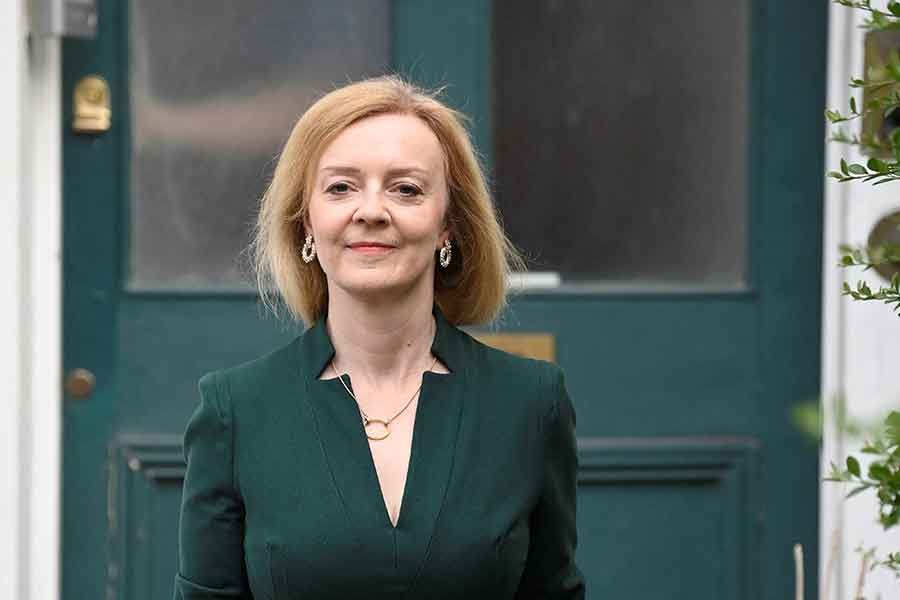Liz Truss, the favourite to become Britain's next prime minister, said on Tuesday she still favoured tax cuts over direct support to households that are facing a 230 per cent leap in annual energy bills in January to around 4,200 pounds.
The Bank of England warned last week that Britain is on course for a long recession as unprecedented energy prices push inflation towards 13 per cent. Charities, business groups and politicians have urged the government to set out support plans now.
Truss's rival for the top job, Rishi Sunak, announced a 15-billion-pound package when he was finance minister in May that included a 400-pound energy bill credit for this winter. Since then, wholesale energy costs have soared even higher.
Asked how she would respond, Conservative Truss said she would deal with the circumstances as they arose but she favoured cutting taxes to grow the economy.
"What I don't believe in is taxing people to the highest level in 70 years, and then giving them their own money back," she told reporters, when asked about direct support. She has also vowed to halt green levies, which would reduce bills by less than 8 per cent.
Truss's response sparked alarm on social media on the day that forecasting group Cornwall Insight set out its new estimates, and amid concerns that the Conservative leadership race has left a political vacuum in the government.
Outgoing Prime Minister Boris Johnson has said any new policy should be set by his successor after they enter office on Sept 5.
SOARING COSTS
Cornwall Insight now expects the cap on a typical household energy contract to rise by 82 per cent in October, adding to the 54 per cent rise that came into force in April. It will take average annual bills for gas and electricity to 3,582 pounds, due to soaring wholesale costs and changes in the way the cap is set.
The cap is then expected to rise to 4,266 pounds in January, compared with Cornwall's previous forecast of 3,616 pounds. The price cap was 1,277 pounds earlier this year.
"It is essential that the government use our predictions to spur on a review of the support package being offered to consumers," Craig Lowrey, principal consultant at Cornwall Insight, said in a statement.
Ed Miliband, energy spokesman for the opposition Labour Party, described the increase as "catastrophic", while vocal consumer campaigner Martin Lewis said it would leave many people destitute and the "zombie" government needed to wake up.
Critics have said that a move to cut taxes would benefit the wealthy over the poorest households. Sunak's campaign described the policy as "divorced from reality".
Cornwall Insight's estimate was revised higher following changes made to the way the cap is calculated by regulator Ofgem. It said it may be time to discuss whether the cap system should be scrapped.
Energy suppliers typically hedge, or buy in advance, energy to help protect from price shocks, yet many have struggled to keep pace with volatile and record high wholesale gas prices over the past year. More than 20 suppliers have gone bust.
Ofgem said last week suppliers could recover some of their hedging costs by adding them to household bills over a shorter time frame.
Ofgem said Cornwall's forecast for January should be viewed with caution due to volatile wholesale markets.
($1 = 0.8262 pounds)


